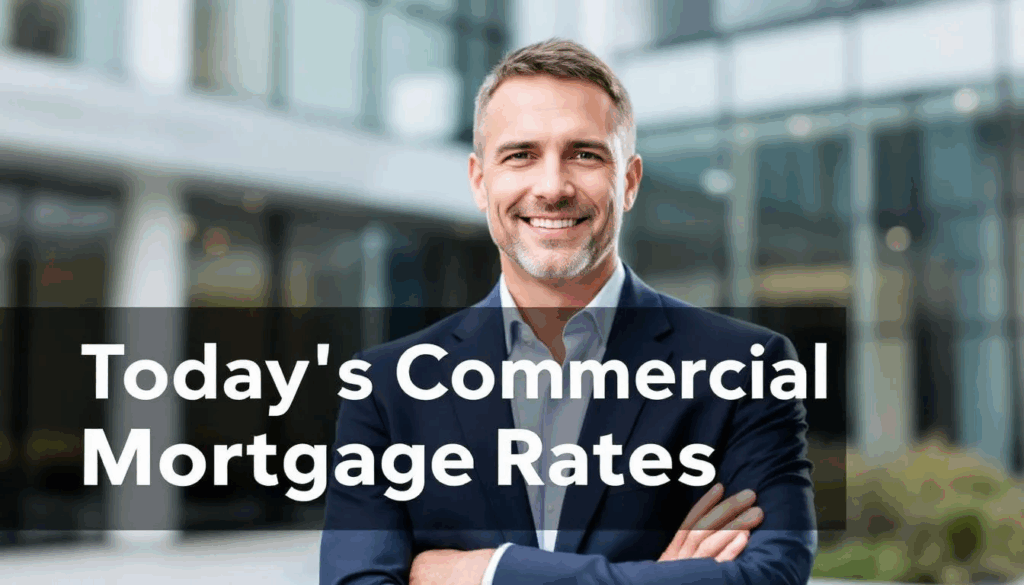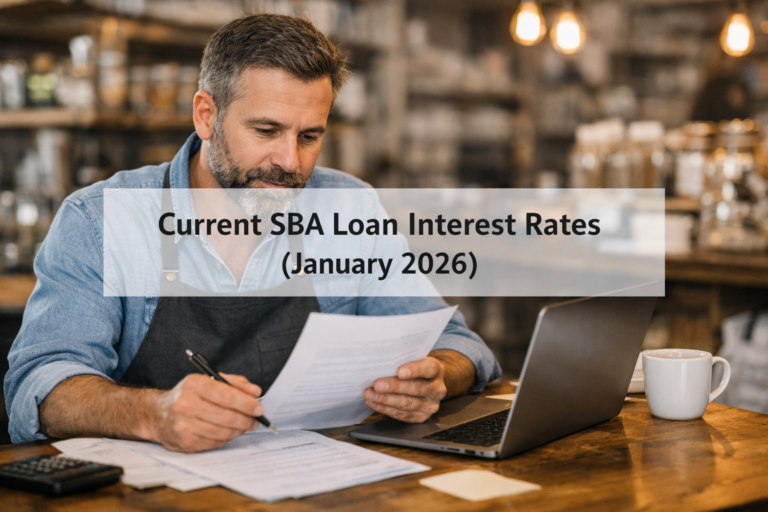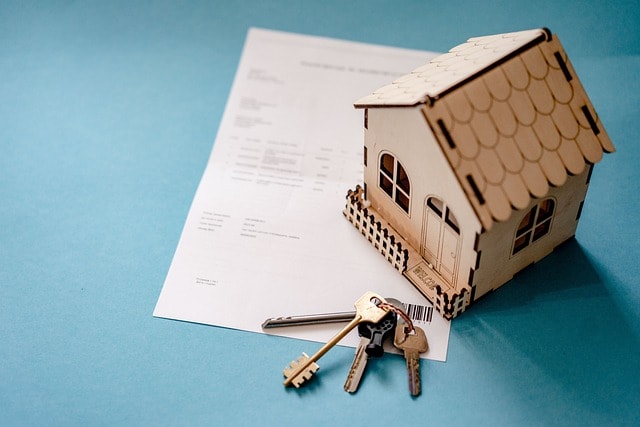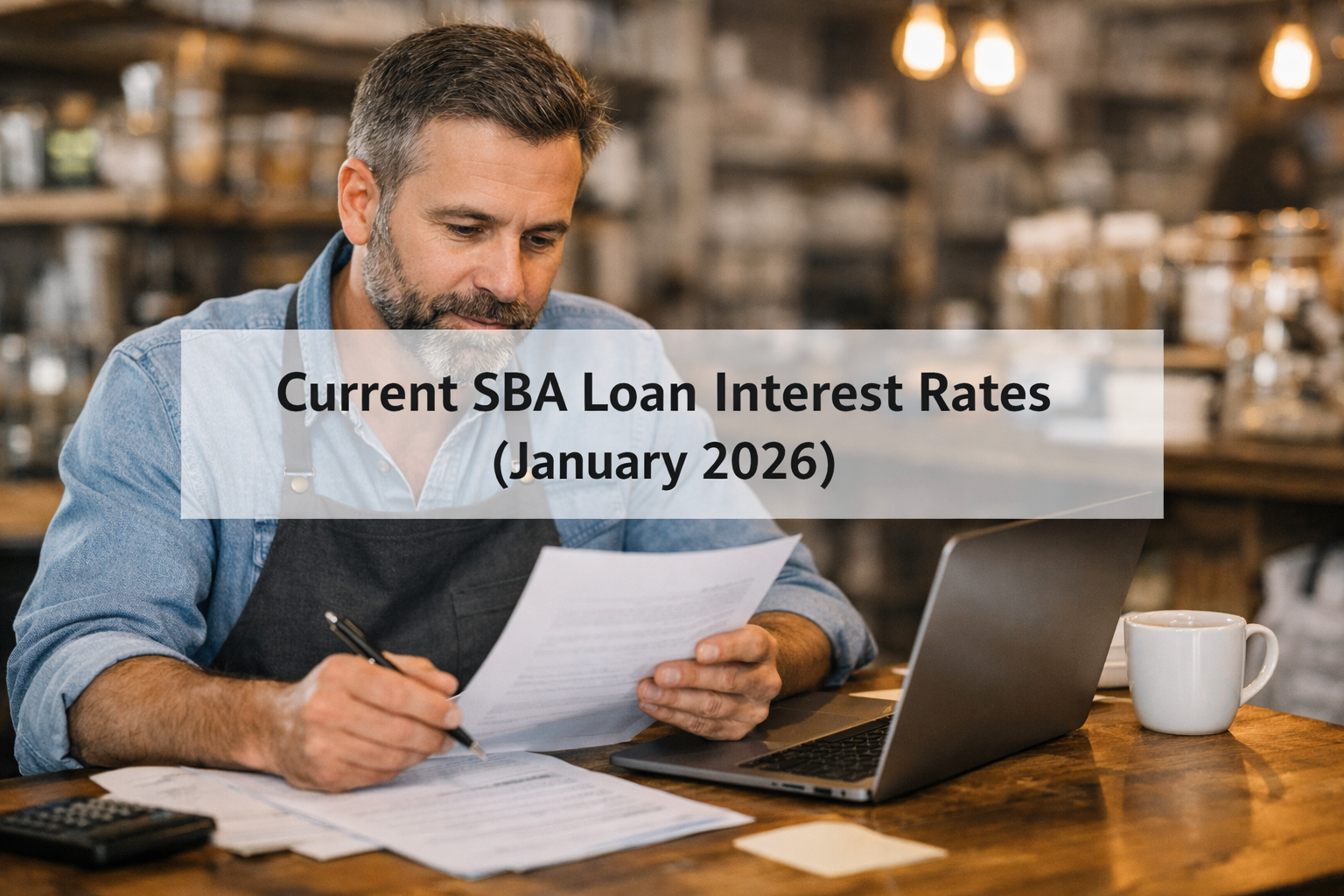What is a Commercial Mortgage?
A commercial mortgage, also known as a commercial real estate loan (CRE loan), is a financial product used to purchase, refinance, or renovate commercial properties. Like a traditional residential mortgage, a commercial mortgage requires the borrower to repay the loan in installments, with interest, over a set period. However, while residential loans are used to purchase homes or residential properties, commercial mortgages are specifically designed for business owners and investors seeking commercial real estate.
Commercial mortgages are often used to finance a wide variety of commercial property types, including office buildings, retail centers, industrial properties, apartment buildings, and more. These loans can also be used for land acquisitions or to fund construction projects. For example, a business owner might apply for a commercial mortgage to purchase an office building for their company or to buy an investment property that generates rental income.
In essence, if a business or investor needs financing to purchase commercial real estate, a commercial mortgage is often the solution. Commercial mortgages typically have terms of 10 to 25 years. The fixed interest rates are usually between 5% and 15%, depending on the asset class, geography, and mix of tenants. Like residential mortgages, commercial mortgages involve principal and interest payments.
How do Commercial Mortgages work?
Understanding how commercial mortgages work is crucial for business owners who need to secure financing for their commercial real estate endeavors. Commercial mortgage loans are typically recourse, meaning borrowers may be personally liable for the mortgage if they default.
Below, we break down the essential components of a commercial mortgage, including loan types, down payments, loan-to-value ratios, and loan terms.
Commercial Real Estate Loan Types
Several types of loans can be used to fund commercial real estate purchases, each offering different advantages and conditions. The most common types of commercial real estate loans include:
- Business Term Loans: These conventional term loans offer funding for general business needs, including purchasing commercial real estate.
- SBA Loans: Small Business Administration (SBA) loans are government-backed loans with lower interest rates and longer repayment terms. They can be used to purchase commercial real estate, particularly owner-occupied properties. SBA 7(a) loans provide funding for commercial property acquisition. SBA 504 loans require working with participating lenders, such as certified development companies.
- CRE Loans: Commercial Real Estate Loans (CRE) are designed to purchase, refinance, or develop commercial real estate. Banks, credit unions, and other commercial mortgage lenders typically offer these loans.
- Hard Money Loans: These are short-term loans typically provided by private lenders. Hard money loans are often used when traditional financing isn’t available and come with higher interest rates.
- Construction Loans: Commercial construction loans are short-term financing products that provide funding for new construction or renovating an existing property. Several options offer interest-only payments with a large balloon payment at the end of the term. It may be possible to convert a construction loan into a traditional mortgage. These loans are good for multifamily properties or other investment property options.
Each loan type serves a different purpose and offers different terms based on the borrower’s needs, the type of property, and the borrower’s creditworthiness.
Down Payment
A down payment is typically required when taking out a commercial mortgage. While the exact amount can vary depending on the lender and the type of property, most lenders require a down payment of 20% to 30% of the property’s purchase price.
For example, if you are buying a commercial property for $1 million, you may need to put down $200,000 to $300,000. The larger the down payment, the more favorable the loan terms may be, as it reduces the lender’s risk.
Loan-to-Value (LTV)
The loan-to-value ratio (LTV) is essential in commercial mortgage financing. LTV measures the loan amount relative to the property’s value as collateral. Lenders typically prefer a lower LTV ratio, which indicates a lower loan default risk. An LTV ratio between 60% and 80% is acceptable for most commercial loans. A higher LTV means the borrower may face stricter terms or higher interest rates, as it increases the lender’s risk.
For instance, if you are borrowing $800,000 to purchase a commercial property valued at $1 million, your LTV ratio would be 80%. LTV and annual revenue determine the maximum loan amount available.
Loan Terms
Commercial mortgage loan terms can vary significantly depending on the lender, the type of property, and the borrower’s qualifications. Common loan terms for commercial mortgages are typically between 5 and 20 years.
- Short-term Loans: Shorter loan terms, generally 5 to 7 years, may come with lower interest rates but often require the borrower to refinance the loan at the end of the term.
- Long-term Loans: Long-term loans, typically 15 to 20 years, allow business owners to spread out payments over a longer period. These loans may come with higher interest rates, but they offer more stability for cash flow management.
Interest Rates
Interest rates on commercial mortgages can vary widely, depending on several factors, such as the type of loan, the property being financed, and the borrower’s credit history. Generally, commercial loan rates are higher than residential mortgage rates. The Federal Reserve’s actions, particularly changes in the federal funds rate, also significantly influence commercial mortgage rates.
What are Today’s Commercial Mortgage Rates?
Commercial loan interest rates fluctuate due to various factors, including economic conditions and shifts in the federal funds rate. Over the past several months, the commercial mortgage market has experienced some volatility as the Federal Reserve has adjusted the interest rate to control inflation.
As of August 15, 2025, the average interest rate for a 5-year commercial mortgage loan starts at around 5.23%, while the average for a 10-year fixed-rate commercial mortgage is approximately 6.23%. However, these rates are subject to change and can vary based on the type of property being financed, the creditworthiness of the borrower, and market conditions. The actual rates you’ll receive depend on the lender, current market conditions, and your creditworthiness.
| Loan Type | Typical Rate (Approx.) |
|---|---|
| Conventional Commercial Loans | ~5.23% |
| SBA 504 Loans (10-year) | ~6.09% |
| SBA 504 Loans (20-year) | ~6.41% |
| SBA 504 Loans (25-year) | ~6.44% |
| SBA 504 Loans (effective rate) | 20-yr: 6.25%; 25-yr: 6.23% |
| SBA 7(a) Loans (variable max) | Up to ~13%–14% (Prime + 3–6.5%) |
| SBA 7(a) Loans (fixed max) | Up to ~12.5%–15.5% |
| Bridge Loans (Commercial) | ~5.34%–14.34% |
| Construction Loans (Commercial) | ~10.50% |
What’s Going on with Commercial Mortgage Rates?
Several factors impact commercial mortgage rates. The most significant among these is the federal funds rate, which influences the rates set by banks and other lenders. If the Federal Reserve cuts the federal funds rate, commercial mortgage rates may decrease, making investing in commercial real estate more attractive. Conversely, commercial mortgage rates typically increase when the Fed raises the federal funds rate.
Other factors influencing commercial mortgage rates include the type of commercial property being financed. For example, funding for office buildings may have different interest rates than for industrial properties or multifamily housing. Additionally, the borrower’s creditworthiness plays a significant role in the rate offered. Borrowers with higher credit scores are often eligible for lower interest rates.
Why are Commercial Mortgage Rates fluctuating?
Commercial mortgage rates can fluctuate due to several economic factors. The most important of these are:
- Federal Funds Rate: Changes in the federal funds rate directly impact the interest rates for commercial mortgages. The federal funds rate range currently sits at 4.25% to 4.50%.
- Treasury Rates: Commercial mortgage rates are influenced by key benchmarks like the 5-year Treasury and the 10-year Treasury.
- Economic Conditions: A robust economy may increase demand for commercial properties, which can raise interest rates. In contrast, an economic downturn may lower rates as lenders seek to stimulate borrowing.
- Fixed vs. Variable Rates: Fixed-rate loans have an interest rate that remains constant over the term of the loan, while variable-rate loans can fluctuate based on changes in the market. Borrowers should understand the differences and choose the option that best suits their financial strategy.
| Index / Factor | Current Range | Impact on Rates |
|---|---|---|
| Secured Overnight Financing Rate (SOFR) | ~4.34% (avg) | Floating-rate loans track this; acts as base for adjustable-rate CMBS |
| U.S. 10-Year Treasury Yield | ~4.24%–4.29% | Sets baseline for fixed-rate loans and MBS valuations |
| U.S. 5-Year Treasury Yield | ~3.82% | Influences intermediate-term loan pricing |
| Federal Funds Rate | 4.25%–4.50% | Anchors short-term borrowing rates and indirectly influences SOFR |
| Inflation / Economic Outlook | Elevated (yields ~4.3%) | Strong inflation = higher long-term rates; slowdown could reduce rates |
| LIBOR Transition | N/A | Adds complexity and risk premiums to spreads |
| Repo/SOFR Volatility | Potential spikes above ~4.34% | Can unpredictably raise short-term loan costs |
| Risk-Based Pricing (Margins) | +1%–3%+ above base indices | Effective rates vary widely based on the borrower/profile |
| CMBS Spreads | +1–3% over Treasury yields | Determines actual commercial loan cost premium |
What are the qualifications for a Commercial Mortgage?
Business owners must meet specific financial criteria to qualify for a commercial mortgage. Commercial lenders assess the borrower’s business and personal credit scores, the property’s value, and the down payment.
Business and Personal Credit Scores
Lenders typically require a credit score of 680 or higher for approval. A higher credit score improves the borrower’s chances of securing a loan with favorable terms, such as lower interest rates and longer repayment periods. Lenders will also assess the debt service coverage ratio (DSCR), which measures the borrower’s ability to generate enough cash flow to cover debt payments.
Down Payment and Lending Ratio Qualifications
As mentioned earlier, commercial mortgage lenders generally require a down payment of 20% to 30%. The loan-to-value ratio is also an important consideration, with lenders typically accepting LTV ratios ranging from 60% to 80%. Making a larger down payment improves metrics like the debt service coverage ratio (DSCR) and LTV, which can lead to a lower interest rate.
How can I apply for a Commercial Mortgage?
You can apply for a commercial real estate loan through our network of lenders using an SBA or business term loan. Follow these steps to apply.
Step 1: Ensure You Qualify
You’ll need a credit score between 650 and 700 and a healthy, consistent cash flow. You will also need documentation of the property you’re interested in, such as the address, property type, owner-occupancy ratio, total sale price, plans to renovate, and a list of revenue-generating tenants (if any).
Step 2: Gather Your Documents
Be prepared to provide:
- Driver’s License.
- Business license or certificate.
- Voided Business Check (for business bank account information).
- Bank Statements.
- Credit Report/Statement of Personal Credit History.
- Business Tax Returns.
- Credit Card Processing Statements.
- Personal Tax Returns – 3 Years.
- Business Tax Returns – 3 Years.
- Business Plan (Not in all cases).
- Personal Financial Statement.
- List of Real Estate Owned or Business Leases, if applicable.
- Debt Schedule/Loan/Rent/Lease Documentation
- Deeds/Title/Ownership documentation for any collateral/Security.
- Current Profit & Loss Statements and Balance Sheet Year-to-Date.
- A/R and A/P Reports.
- United Capital Source 1 Page Application.
Step 3: Fill Out the Application
You can begin the application process by calling us or filling out our one-page online application. Either way, you’ll be asked to enter the information from the previous section along with your desired funding amount.
Step 4: Speak to a Representative
Once you apply, a representative will contact you to explain the repayment structure, rates, and terms of your available options. This way, you won’t have to worry about any surprises or hidden fees during repayment.
Step 5: Receive Approval
Commercial Real Estate Loans through our network generally take 3-5 weeks to process. Once approved and your file is closed, funds should appear in your bank account in a few business days.
If and when approved for a business term loan, funds should appear in your bank account in 1-2 business days.
What are the benefits of a Commercial Mortgage?
Commercial mortgages offer several compelling benefits for business owners seeking to invest in commercial real estate. One of the most significant advantages is the opportunity to leverage the property’s value to grow the business.
By financing the purchase of commercial real estate, businesses can secure a physical location for operations, which can lead to long-term stability and control over their space. Commercial mortgages typically come with favorable long-term financing options, meaning lower monthly payments than short-term loans. This provides businesses with more flexibility in managing cash flow.
Another key benefit is the potential for tax deductions, as mortgage interest payments may be tax-deductible, reducing the overall cost of financing. Furthermore, owning property allows businesses to build equity over time, potentially increasing their wealth and providing collateral for future borrowing. This can be particularly advantageous for companies looking to expand or invest in new projects.
What are the drawbacks of a Commercial Mortgage?
Despite the numerous benefits, commercial mortgages also present certain risks and drawbacks that business owners must consider. One of the primary challenges is the requirement for a substantial down payment, which can range from 20% to 30% of the property’s value, depending on the lender and loan type.
Additionally, commercial mortgage loans often come with higher interest rates compared to residential mortgages, especially if the borrower has a lower credit score. The long-term nature of the loan can also be a disadvantage, as it requires a consistent commitment to make monthly payments, sometimes for decades.
If a business experiences financial difficulties, making these payments can become a significant burden. In the worst-case scenario, failure to meet payment obligations may lead to foreclosure, putting the business’s real estate and other assets at risk.
This long-term commitment and potential for financial strain make it crucial for businesses to thoroughly assess their ability to manage such a loan before proceeding with a commercial mortgage.
Commercial Mortgage Pros & Cons
Pros:
- Leverages real estate to grow the business.
- Access to long-term financing with lower monthly payments.
- Potential tax deductions on mortgage interest.
- Provides stability and control over the business space.
- Builds equity over time, which can be used for future investments.
Cons:
- Requires a substantial down payment (typically 20%-30%).
- Higher interest rates compared to residential mortgages.
- Long-term commitment with a lengthy repayment period.
- Risk of financial strain and foreclosure if payments are missed.
- It may be challenging for businesses with financial difficulties to maintain payments.
Frequently Asked Questions
Here are the most common questions about today’s commercial mortgage rates.
What are the other costs besides Commercial Mortgage Rates?
Remember to focus on more than the rate when shopping for commercial mortgage rates. Here are a few other costs that can significantly increase the total cost of obtaining a commercial real estate loan.
Perhaps the most significant additional cost is the down payment. Lenders typically want you to have at least 20-30% of the property value as skin in the game. The amount of this upfront payment is extremely important when it comes to calculating the loan-to-value (LTV) ratio. It has a direct impact on what interest rate the lender will provide. Some long-term loans have prepayment penalties if you pay them off in the first several years.
Another significant expense is an appraisal fee to establish the property’s fair market value. Title fees. These costs can quickly add up, making sure the property’s title is clear and transferable. Insurance is essential to safeguard your investment from unexpected damage.
Maintenance costs are long-term, taking care of the property while it’s still an investment. Closing costs are generally 2-5% of the loan amount. These are hard-dollar closing costs, such as attorney fees, title insurance, permits, and other legal expenses. Each component deserves its own treatment to understand best the depth of the financial commitment involved in commercial real estate investment.
How do Lenders determine Commercial Mortgage Interest Rates?
Lenders consider various factors when determining the interest rates for commercial mortgages. These factors are influenced by the type of property, the borrower’s financial profile, and broader economic conditions.
Unique characteristics of commercial properties often lead to more complex evaluations compared to residential properties. Understanding these key considerations can help borrowers secure the best rates available.
Property Type and Asset Class
One of the primary factors lenders consider when determining commercial mortgage rates is the type of financed property. Different asset classes, such as office buildings, retail spaces, industrial properties, or multifamily units, carry varying degrees of risk.
Commercial properties that are considered more stable, such as multi-tenant office buildings or retail spaces in high-demand areas, may qualify for lower interest rates, as they tend to have more predictable cash flows and higher tenant demand. Conversely, properties in niche markets or areas with limited demand may attract higher interest rates due to their higher risk profiles.
Geographic Location of the Property
The property’s geographic location is also crucial in determining the mortgage rate. Lenders typically consider properties located in thriving economic regions with access to key infrastructure, strong local economies, and high-demand, lower-risk investments.
These properties may qualify for more favorable rates. On the other hand, properties in less stable or economically challenged areas may present higher risks due to market volatility, population decline, or lower tenant demand, which could result in higher interest rates to offset those risks.
Tenant Mix
The tenant mix of a commercial property—meaning the type and number of tenants occupying the space—is another critical factor in rate determination. Lenders favor properties with a diverse and stable tenant mix, as this reduces the risk of income loss from vacancies.
Properties with long-term leases from well-established businesses or government tenants may qualify for lower rates because these types of tenants tend to have more predictable cash flow. On the other hand, properties with a higher percentage of vacancies or short-term leases may face higher rates, as they are viewed as riskier investments.
Loan-to-Value (LTV) Ratio
The Loan-to-Value (LTV) ratio is another critical factor that lenders use to determine interest rates. The LTV ratio represents the percentage of the property’s value that the loan will cover. A higher LTV ratio means the borrower is financing a more significant portion of the property’s value, which increases the lender’s risk.
Typically, the higher the LTV ratio, the higher the interest rate will be, as lenders may require higher rates to compensate for the added risk. For example, a loan with an LTV of 80% is generally considered higher risk than a loan with an LTV of 60%, which could result in a higher rate for the borrower.
Borrower Creditworthiness
The borrower’s creditworthiness is a significant factor in determining commercial mortgage rates. Lenders assess the borrower’s business and personal credit scores to gauge their ability to repay the loan. A high credit score indicates a lower-risk borrower, and as a result, they are more likely to receive a favorable interest rate.
Lenders typically look for a minimum personal credit score of around 680, although this may vary depending on the lender and the specific loan product. Strong credit histories, consistent cash flow, and financial stability can result in lower rates, while borrowers with poor credit histories may face higher rates or difficulty securing financing.
The Federal Funds Rate
Interest rates on commercial mortgages are also influenced by broader economic conditions, particularly the federal funds rate set by the Federal Open Market Committee (FOMC). The federal funds rate directly impacts short-term borrowing costs for banks and financial institutions and, in turn, influences the rates they offer to commercial borrowers.
When the Federal Reserve raises or lowers the federal funds rate, commercial mortgage rates tend to adjust accordingly, often rising or falling by a similar percentage. Lenders have been phasing out historical benchmarks like the Prime rate and LIBOR. However, the Prime rate still influences SBA loan rates, including SBA loans for commercial real estate.
Fixed vs. Variable Rate Loans
The type of loan chosen can also affect the interest rate. Fixed-rate loans have an interest rate that stays the same for the duration of the loan term, providing borrowers with predictability in their payments. Fixed rates are often tied to the U.S.
Treasury bonds are issued with lenders adding a margin based on the property’s perceived risk and the borrower’s risk. These loans are typically more attractive in a low-interest-rate environment when borrowers want to lock in a stable rate for an extended period.
Variable-rate loans, on the other hand, are typically based on the prime rate or another benchmark interest rate. Variable interest rates fluctuate over time, which means the borrower’s monthly payments may change as interest rates rise or fall. While variable-rate loans may offer lower initial rates, they risk increasing costs if interest rates rise, making them more unpredictable and potentially more expensive over the long term.
Interest Rate Ranges
Commercial mortgage interest rates can vary widely depending on the factors mentioned above. Generally, commercial mortgage rates range from around 5% to 15%. Borrowers with strong credit, low LTV ratios, and stable properties in high-demand locations may be able to secure rates on the lower end of this spectrum.
Conversely, borrowers with weaker credit, higher LTV ratios, or properties in riskier markets may face higher rates. Market conditions, including changes in the federal funds rate, treasury bond yields, and overall economic stability, also influence the fluctuations in interest rates.
Can I get a Commercial Mortgage with Bad Credit?
Commercial real estate loans are available for borrowers with bad credit. Alternative business lenders might be more willing to approve these loans than traditional banks or credit unions. While having bad credit can make securing a commercial real estate loan challenging, options remain.
However, a low credit score means higher fees and a higher interest rate. It also limits your purchasing power, so you might not be able to get as much as you need for the property.
Some small business owners use bad credit business loans as bridge financing. It could provide high-cost, short-term funding while you repair your credit and qualify for a more advantageous, long-term loan.
Understanding Today’s Commercial Mortgage Rates – Final Thoughts
Understanding commercial mortgage rates helps you make informed decisions for your business’s growth. Recognizing how rates fluctuate allows you to navigate different financing options, from office buildings to warehouses.
Even with damaged credit, there are choices available. Consider both the benefits—such as property ownership and appreciation—and the potential downsides, like interest rate changes. Evaluate your business’s financial health and long-term goals to secure the best commercial mortgage financing tailored to your success.
Contact us if you have more questions about commercial mortgages or if you want to apply for a small business loan. Our alternative financing experts can help you find the best loan options for your business needs.












